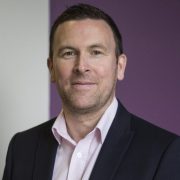Following recent reports in the media about the treatment of vulnerable sex abuse victims in court, the head of the judiciary in England and Wales has spoken about plans to allow only a select amount of judges to hear complex child sex abuse cases.
The judges will have had to undergo specialist training and would be appointed to oversee lengthy cases, especially those were vulnerable witnesses are involved.
The plans have been put forward by the Home Affairs Select Committee following criticism against lawyers at the trials of men accused of grooming and sexually exploiting their victims. There have been reports recently that a barrister described a 13 year old sex abuse victim as “predatory’ and “sexually-experienced’. The Crown Prosecution Service labelled this language as “inappropriate’, especially as the Defendant in the case, Mr Neil Wilson, was 41 years of age.
Lord Chief Justice Lord Judge had accepted that the court process may have operated “imperfectly’ over the years in relation to cases involving vulnerable victims. However, he did not believe that specialist courts would assist in sex abuse cases, despite MPs calling for this action. Lord Judge was of the view that specialist courts would only slow down the judicial process, due to there being limited availability of venues which would increase the waiting times. In addition, setting up these courts would prove expensive.
However, Lord Judge agreed that a limited number of judges with bespoke training should hear the more complex trials. Lord Judge also agreed with government proposals that the most vulnerable and younger victims should be allowed to pre-record evidence. This would assist them in avoiding attending court and the associated anxiety that this would bring.
Javed Khan who is the chief executive of the charity Victim Support welcomed the plans for specialist judges and additional training. He stated that this was “a considerable step in the right direction’. Mr Khan highlighted that although judges do handle cases sensitively they have been known to be slow to interject during “overly aggressive cross-examination’.
Concerns over having to face their abusers, in a protected court situation or otherwise, can understandably prevent the victims of abuse from coming forward. It is hoped that now the issue has been identified and discussions regarding how abuse trials will proceed in the future have been started, that victims of abuse will be treated with greater compassion and be afforded a court environment in which they will feel safe.
Farleys has a team of solicitors specialising in child abuse claims. If you have been affected by this story and wish to speak to one of the team about it, please do not hesitate to contact us.





